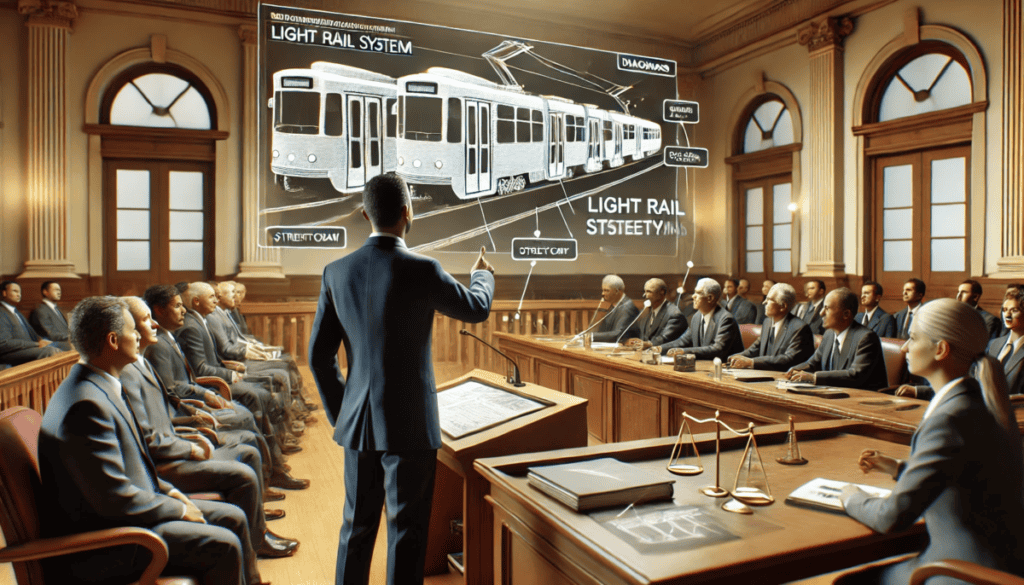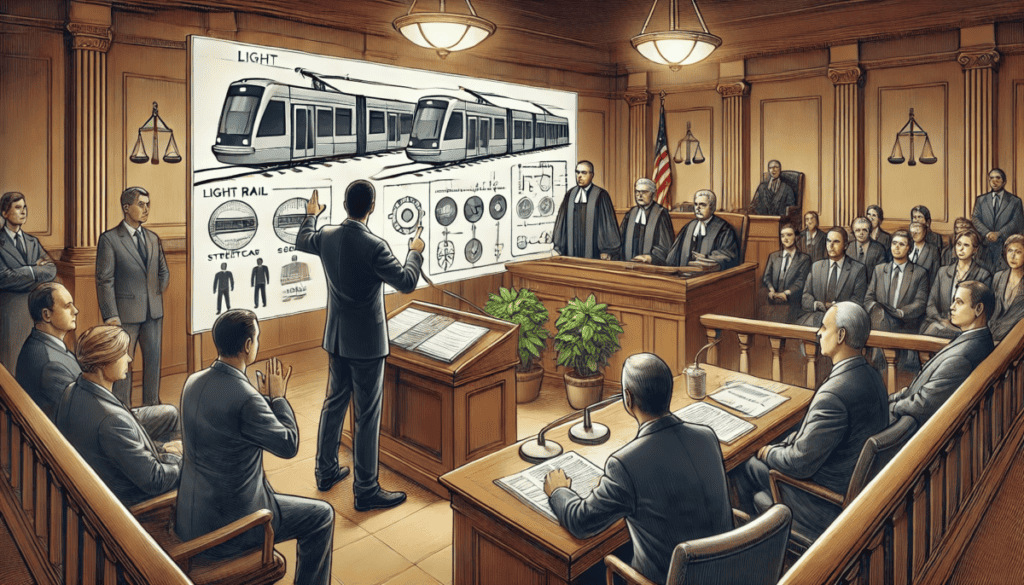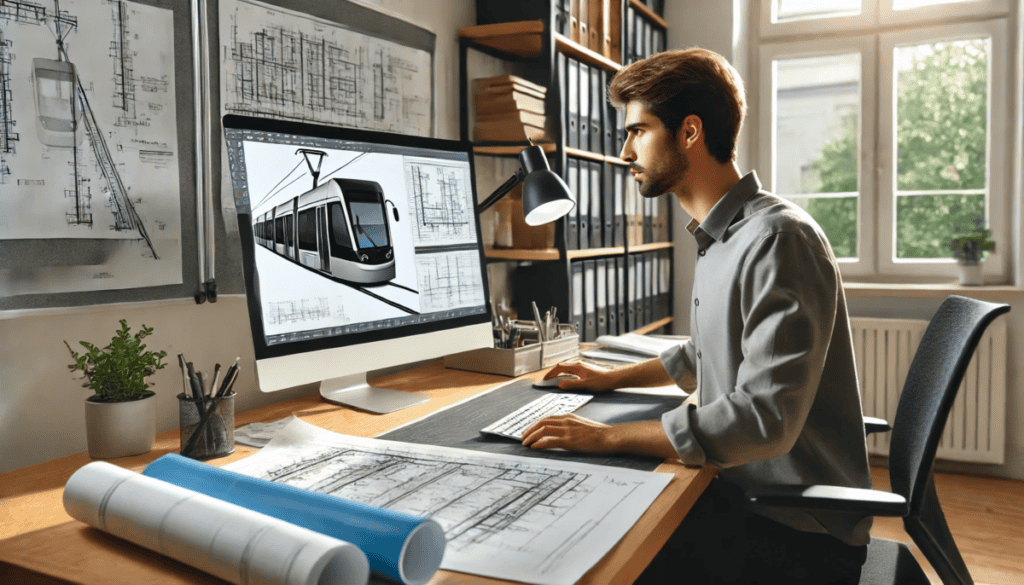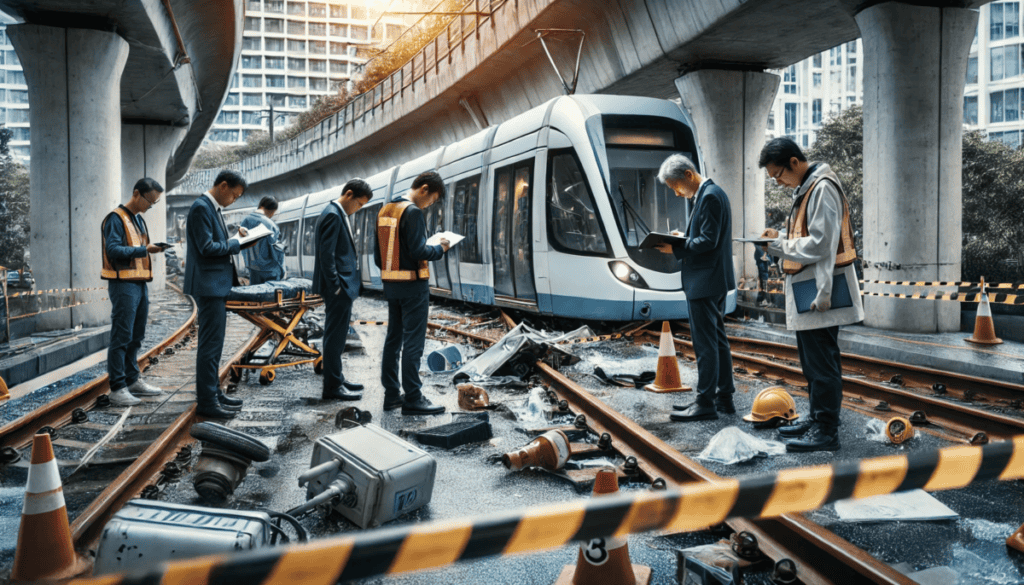Light Rail Expert Witness: Testifying vs. Consulting Roles

Expert Witnesses: Testifying vs. Consulting Roles in the Light Rail Industry
In the light rail industry, expert witnesses are crucial in providing specialized knowledge and insights that can significantly impact the outcome of legal proceedings.
These professionals can be categorized into two primary types: testifying and consulting expert witnesses.
Each type serves distinct functions within the legal process, and understanding their roles and contributions is essential for effectively leveraging their expertise.
Understanding the Role of an Expert Witness
An expert witness is a person who possesses specialized knowledge, skills, and experience in a particular field relevant to the issues in a legal case.
Their expertise is beyond that of an average person and is used to assist the court in understanding complex technical or scientific matters.
In the light rail industry, which includes streetcars, trolleys, tramways, and railroads, expert witnesses might include engineers, transportation planners, safety specialists, and other professionals with deep knowledge of rail systems.
The keyphrase “Expert Witness” refers to individuals called upon to provide expert opinions in legal cases. The term encompasses testifying and consulting expert witnesses, each playing distinct but complementary roles in the legal process.

Testifying Expert Witness
Definition and Role: A testifying expert witness is an individual who provides sworn testimony in legal proceedings based on their specialized knowledge.
A testifying expert witness might offer opinions on technical aspects such as engineering design, safety standards, and operational protocols for streetcars, trolleys, tramways, and railroads in the light rail industry.
Responsibilities:
- Providing Testimony: The primary role of a testifying expert witness is to present their expert opinions during depositions, hearings, and trials. They must explain complex technical concepts in a manner understandable to judges, juries, and attorneys.
- Expert Reports: Testifying experts prepare detailed reports that outline their findings, methodologies, and conclusions. These reports are often submitted as evidence and form the basis for their testimony.
- Cross-Examination: Testifying experts must be prepared to defend their opinions and methodologies under cross-examination. This requires clear and confident articulating their positions and addressing any challenges opposing counsel poses.
- Compliance with Legal Standards: Testifying experts must adhere to legal standards for expert testimony, such as those outlined in the Daubert or Frye standards. These standards assess the relevance and reliability of expert testimony.
Example: In a streetcar accident case, a testifying expert witness might be called upon to analyze the cause of the incident. They could provide insights into whether the accident resulted from engineering flaws, inadequate maintenance, or non-compliance with safety regulations. Their testimony could be pivotal in determining liability and informing the court’s decision.
Qualifications: To serve as a testifying expert witness in the light rail industry, individuals typically need advanced degrees in relevant fields, substantial industry experience, and appropriate certifications or licenses. Their expertise must be recognized and respected within their professional community.
Challenges: Testifying expert witnesses face several challenges, including the need to present complex information in an accessible manner, the pressure of cross-examination, and the necessity to maintain impartiality despite potential biases from retaining parties.

Consulting Expert Witness
Definition and Role: A consulting expert witness provides specialized knowledge and advice to attorneys or parties involved in a legal case without typically testifying in court. Their role is more behind-the-scenes, helping legal teams understand technical issues and develop case strategies.
Responsibilities:
- Case Analysis: Consulting experts analyze the technical aspects of a case, helping attorneys understand complex issues and identify strengths and weaknesses in their arguments.
- Strategic Advice: They provide strategic advice on how to approach technical matters, which can be crucial in shaping the direction of the case.
- Expert Reports: While consulting experts may also prepare reports, these are usually used internally by legal teams rather than submitted as evidence.
- Witness Preparation: Consulting experts often assist in preparing testifying witnesses for deposition and trial, ensuring they are well-prepared to present their testimony and withstand cross-examination.
- Technical Research: They conduct in-depth technical research to support the legal team’s case, uncovering pertinent information that might not be immediately apparent.
Example: In a legal dispute involving the procurement and installation of tramway systems, a consulting expert witness might be hired to evaluate the equipment’s technical specifications, assess compliance with contractual obligations, and advise the legal team on potential areas of contention. Their insights could be instrumental in settlement negotiations or in building a robust case strategy.
Qualifications: Consulting expert witnesses should possess the same expertise and qualifications as testifying experts, including advanced education, industry experience, and professional certifications. However, they also need strong analytical and advisory skills.
Challenges: Consulting experts must navigate the complexities of providing impartial advice while aligning with the legal team’s strategic goals. They must stay abreast of evolving industry standards and regulatory requirements to provide accurate and relevant insights.

The Interplay Between Testifying and Consulting Expert Witnesses
In many legal cases, both testifying and consulting expert witnesses are utilized to leverage their distinct strengths. While the testifying expert provides direct evidence and testimony to the court, the consulting expert supports the legal team with behind-the-scenes analysis and strategy development.
Collaboration:
- Preparation: Consulting experts often help prepare testifying experts by reviewing reports, suggesting focus areas, and conducting mock cross-examinations.
- Consistency: Ensuring consistency in the consulting and testifying experts’ analyses is crucial for the credibility of the case. Discrepancies can undermine the legal team’s arguments.
- Strategy: Consulting experts can help shape the overall legal strategy by identifying key technical issues and advising on how to address them effectively in court.
Example: In a case involving allegations of non-compliance with FTA safety regulations in a trolley project, a consulting expert might review all relevant documentation and regulatory standards, advising the legal team on potential weaknesses in the opposing side’s arguments.
The testifying expert would then present these findings in court, providing clear and authoritative testimony on the compliance issues.

The Importance of Expert Witnesses in the Light Rail Industry
The light rail industry, encompassing streetcars, trolleys, tramways, and railroads, involves complex engineering, safety, and regulatory challenges.
Expert witnesses are vital in helping courts understand these complexities and make informed decisions. Their contributions can influence the outcome of cases involving accidents, contractual disputes, regulatory compliance, and other issues.
Safety and Regulatory Compliance: Expert witnesses in the light rail industry must be well-versed in safety protocols and regulatory requirements. The Federal Transit Administration (FTA) oversees public transportation systems, including light rail, to ensure safety, reliability, and efficiency. Experts need to understand:
- FTA Safety Oversight: Familiarity with the FTA’s role in safety oversight, including implementing the Public Transportation Agency Safety Plan (PTASP) and compliance with the National Public Transportation Safety Plan (NSP).
- Regulatory Compliance: Knowledge of specific FTA regulations, such as Title 49 of the Code of Federal Regulations (CFR), Parts 659 and 674, which pertain to state safety oversight and rail fixed guideway systems.
- Grant Requirements: Awareness of FTA funding and grants requirements, including compliance with the Moving Ahead for Progress in the 21st Century Act (MAP-21) and the Fixing America’s Surface Transportation (FAST) Act.
- Environmental and Accessibility Standards: Familiarity with the National Environmental Policy Act (NEPA) process for transit projects and the Americans with Disabilities Act (ADA) requirements for accessibility in public transportation.
Technical Expertise: The light rail industry encompasses a range of technical disciplines, including civil engineering, electrical engineering, and transportation planning. Expert witnesses must possess deep technical knowledge to provide relevant and accurate insights.
Example: An expert witness might be called upon to assess the structural integrity of a tramway bridge, evaluate the safety of signaling systems, or analyze the efficiency of transit operations. Their expertise helps the court understand the technical aspects of the case and make informed decisions based on sound engineering principles.
Testifying vs. Consulting Expert Witness
Expert witnesses, whether testifying or consulting, are indispensable in the light rail industry’s legal landscape. Their specialized knowledge and insights help courts navigate complex technical and regulatory issues, ensuring that decisions are informed and just.
Understanding the distinct roles and contributions of testifying and consulting expert witnesses is crucial for effectively leveraging their expertise in legal proceedings.
By recognizing the importance of expert witnesses and ensuring they possess the necessary qualifications, experience, and communication skills, legal teams can enhance their ability to present compelling cases and achieve favorable outcomes.
In the dynamic and technically demanding field of light rail, which includes streetcars, trolleys, tramways, and railroads, expert witnesses are key to bridging the gap between complex industry practices and the judicial system’s need for clarity and precision.

